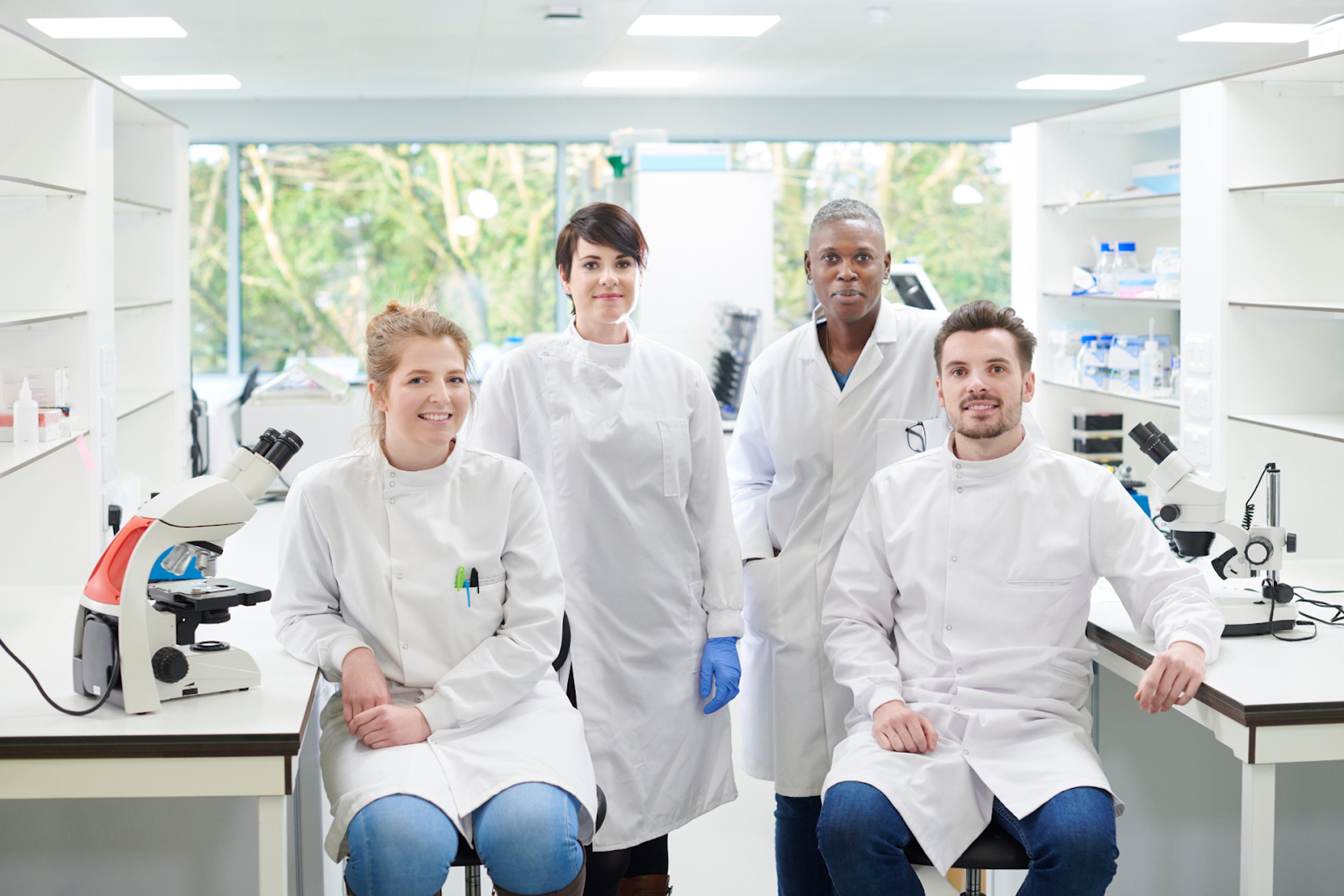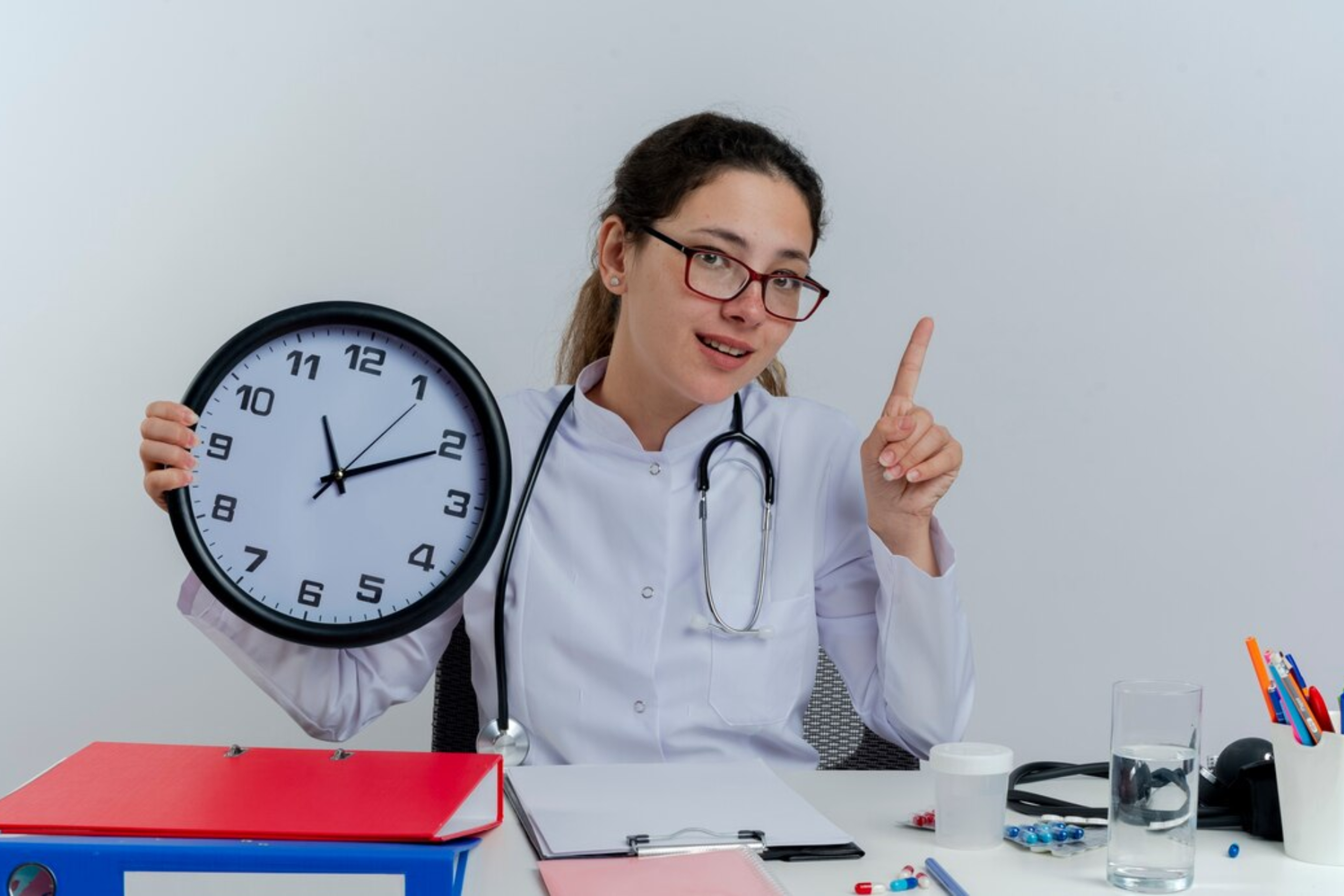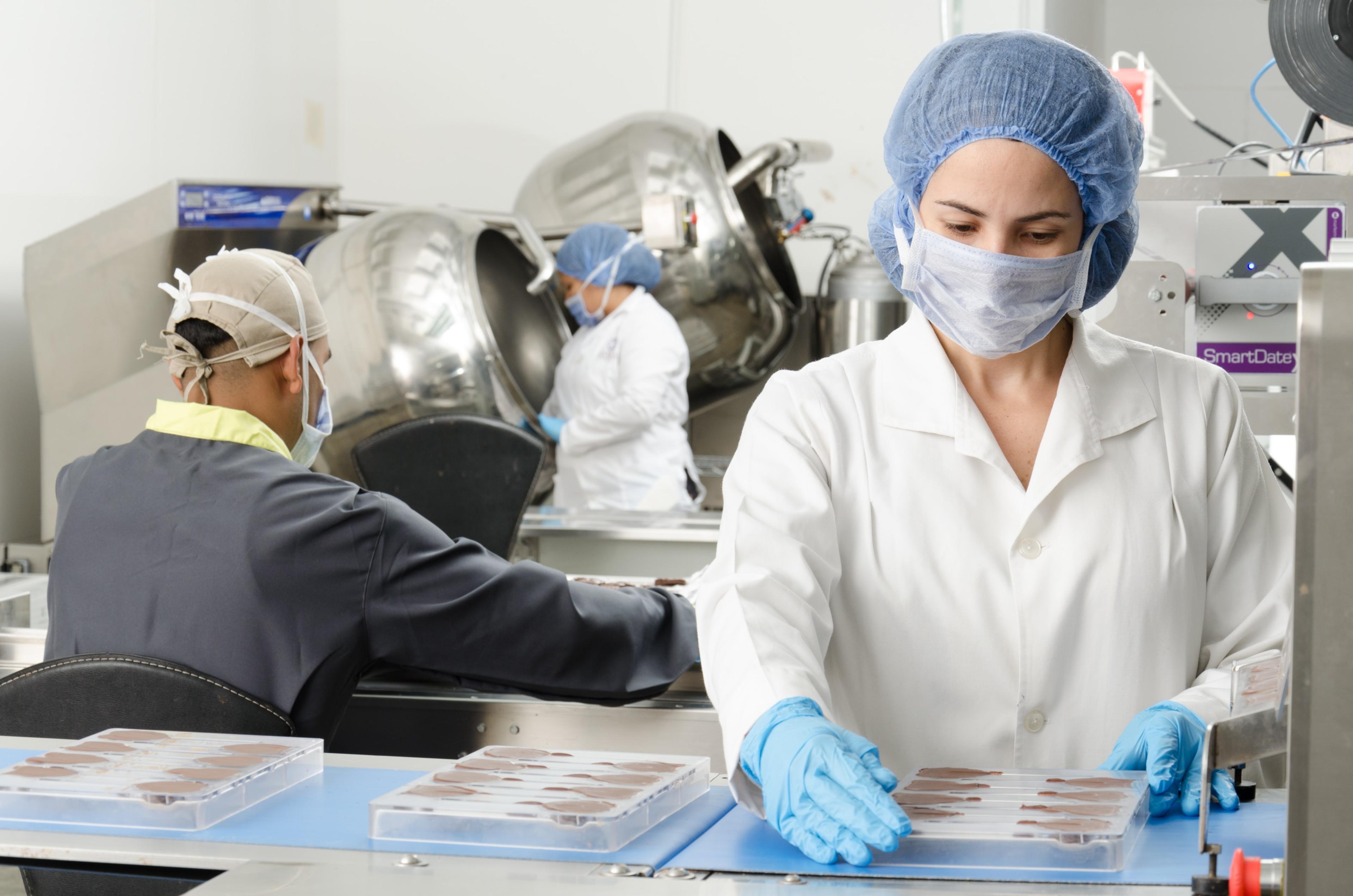The Ideal Number of Clinical Hours for Medical School Applications
Discover the ideal number of clinical hours required for medical school applications.
Posted April 10, 2025

Table of Contents
Free Event

Featuring Jaspreet K.
Ask Me Anything: Medical School Applications
Starting Friday, April 25
12:00 AM UTC · 30 minutes

Featuring Jaspreet K.
When it comes to applying to medical school, one of the most important factors that admissions committees consider is the amount of clinical experience that an applicant has accrued. Clinical hours are a crucial component of a medical school application because they demonstrate to admissions officers not only a student's commitment to medicine, but also their ability to handle the demands of caring for patients. But what exactly is the ideal number of clinical hours one should aim for when applying to medical school?
Why Clinical Hours Matter for Medical School Applications
Before diving into the ideal number of clinical hours one should aim for when applying to medical school, it's important to first understand why clinical hours matter so much to admissions committees. Clinical hours allow students to gain exposure to the medical field, to explore different medical specialties, and to begin to acquire the skills needed to become a physician. Furthermore, clinical experiences show medical school admissions committees that applicants have a genuine interest in the field of medicine and that they understand the nature of the constantly evolving healthcare system.
One of the key benefits of clinical hours is that they provide students with hands-on experience in a real-world medical setting. This experience can help students develop important skills such as communication, teamwork, and problem-solving, which are essential for success in the medical field. Additionally, clinical hours can help students build relationships with healthcare professionals, which can be valuable when it comes time to apply to medical school or seek out other opportunities in the field.
Another reason why clinical hours are so important is that they can help students gain a better understanding of the challenges and rewards of a career in medicine. By working alongside physicians and other healthcare professionals, students can get a firsthand look at the day-to-day realities of the job, including the long hours, high stress levels, and emotional demands. This experience can help students determine whether a career in medicine is truly right for them, and can also help them develop the resilience and determination needed to succeed in this challenging field.
How Clinical Hours are Evaluated in Medical School Admissions
When evaluating clinical hours, medical school admissions committees look not only at the quantity of hours an applicant has accrued, but also at the quality of those hours. In other words, it's better to have fewer, higher quality clinical hours than it is to have a large number of low quality, superficial experiences. It's important for applicants to seek out clinical experiences that will allow them to interact with patients in a meaningful way, to witness various healthcare professions at work, and to gain practical experience in a healthcare setting.
One way to gain high quality clinical experience is through volunteering at a hospital or clinic. This allows applicants to work alongside healthcare professionals and gain hands-on experience in a clinical setting. Additionally, applicants can seek out research opportunities that involve patient interaction, as this can also count towards clinical hours.
It's important for applicants to keep track of their clinical hours and be able to articulate the skills and knowledge they gained during those experiences. Admissions committees want to see that applicants have a clear understanding of the healthcare field and have taken the initiative to gain practical experience. Ultimately, the goal of evaluating clinical hours is to ensure that applicants have a strong foundation in healthcare and are prepared for the rigors of medical school.
The Importance of Quality over Quantity in Clinical Hours
While it's important to get plenty of clinical experience before applying to medical school, it's even more important to make every hour count. Quality experiences allow students to gain a deeper understanding of the healthcare system, to hone their interpersonal and communication skills, and to prepare for the demands of medical school. Therefore, it's important for students to seek out opportunities that challenge them and push them out of their comfort zones.
One way to ensure quality clinical experiences is to seek out opportunities that align with your interests and career goals. For example, if you're interested in pediatrics, look for volunteer or shadowing opportunities in a pediatric clinic or hospital. This will not only provide you with valuable experience, but also help you confirm your career aspirations.
Another important aspect of quality clinical hours is the opportunity to work with a diverse patient population. Exposure to patients from different backgrounds and cultures can help students develop cultural competency and empathy, which are essential skills for healthcare providers. Therefore, students should seek out opportunities to work in clinics or hospitals that serve diverse communities.
What Counts as a Clinical Hour for Medical School Applications
While the definition of "clinical hours" can vary depending on the medical school, generally speaking, clinical hours are hours spent in direct contact with patients in a clinical setting. Examples of clinical experiences that would count towards an applicant's clinical hours include shadowing physicians, volunteering at hospitals or free clinics, working as a medical scribe or a clinical research assistant, and serving as a medical translator. It's important to note that service activities such as volunteering at a nursing home or participating in a medical mission trip do not necessarily count as clinical hours unless they involve direct contact with patients in a healthcare setting.
Balancing Clinical Hours with Other Extracurricular Activities
It's easy to become laser-focused on accruing clinical hours when applying to medical school, but it's important to remember that admissions committees are interested in well-rounded applicants who have diverse interests and experiences. Therefore, it's important to balance clinical hours with other extracurricular activities such as research, community service, or leadership positions. In general, it's better to have a few deep, meaningful extracurricular experiences than a lot of superficial ones.
Strategies for Maximizing Your Clinical Hour Experience
If you're looking to maximize your clinical hour experience, there are several strategies you can employ. For starters, seek out experiences that align with your interests and career goals. This will not only make the experience more enjoyable, but it will also allow you to demonstrate your passion and commitment to medicine. Additionally, be proactive in seeking out new experiences and opportunities. Volunteer to take on new responsibilities or to shadow a physician in a new specialty. This will demonstrate your initiative and eagerness to learn and grow.
The Role of Volunteer Work in Building Clinical Hour Experience
Volunteer work can be an incredibly valuable way to build clinical hour experience and to demonstrate to medical school admissions committees your commitment to serving others. However, it's important to remember that not all volunteer experiences are created equal. Look for opportunities that allow you to work directly with patients in a clinical setting, and try to develop relationships with physicians and other healthcare professionals who can serve as mentors and advocates for you throughout the application process.
How to Document and Track Your Clinical Hours for Medical School Applications
Once you've accrued clinical hours, it's important to document and track them carefully. This will allow you to communicate the extent of your experiences to medical school admissions committees and to ensure that you're meeting the minimum requirements for clinical hours at the schools to which you're applying. There are several ways to document and track your clinical hours, including keeping a journal, using an online tracking system, or working with a pre-med advisor or mentor.
Common Mistakes to Avoid When Completing Your Clinical Hours
When completing clinical hours, there are several common mistakes that applicants should avoid. For starters, it's important to be professional and respectful when interacting with patients and healthcare professionals. Additionally, don't assume that you know everything there is to know about medicine and healthcare. Be open to learning from mentors and other healthcare professionals, and be willing to ask questions and seek out feedback. Finally, don't forget to reflect on your experiences and to think critically about how they've shaped your understanding of medicine and your future career goals.
Finding Opportunities to Gain Clinical Experience in a Pandemic
The COVID-19 pandemic has made it challenging for students to gain clinical experience, as many hospitals and clinics have had to limit the number of non-essential visitors. However, there are still ways to obtain clinical experience during the pandemic. Look for virtual opportunities such as telehealth volunteering or virtual shadowing experiences. Additionally, consider seeking out research opportunities related to the pandemic or volunteering with local community organizations that are responding to the crisis in some way.
How COVID-19 is Affecting the Evaluation of Clinical Hours for Medical School Admissions
The COVID-19 pandemic has also had an impact on how medical school admissions committees are evaluating clinical hours. With fewer opportunities for in-person experiences, admissions committees are being more flexible in their requirements and are considering alternative types of healthcare experience such as virtual shadowing and telehealth volunteer work. Additionally, some schools are offering applicants the option to explain any gaps in their clinical hours due to the pandemic. It's important for applicants to stay informed about how schools are adapting to the pandemic and to take advantage of any opportunities that are available to them.
Expert Advice: Tips from Successful Medical School Applicants on Building Strong Clinical Hour Experience
Finally, it can be helpful to hear tips and advice from successful medical school applicants who have successfully navigated the clinical hour requirements. Some tips include seeking out diverse clinical experiences, developing meaningful relationships with mentors and healthcare professionals, and being proactive in seeking out new opportunities and challenges. Furthermore, don't be afraid to take risks and try new things. Your clinical hour experiences should reflect your unique interests, passions, and perspectives.
Comparing the Ideal Number of Clinical Hours Required by Different Medical Schools
While there is no set number of clinical hours required by medical schools, it's important to research the requirements of the schools to which you're applying. Generally, most medical schools require at least 50-100 hours of clinical experience, although some schools may require more. Additionally, keep in mind that quality is more important than quantity when it comes to clinical hours.
The Future of Clinical Hour Requirements for Medical School Admissions
As the healthcare system continues to evolve, it's likely that the requirements for clinical hours will also shift in response to these changes. However, it's safe to say that clinical experience will continue to be an important factor in medical school admissions as it provides students with the practical experience they need to succeed in medical school and beyond.
In conclusion, the ideal number of clinical hours for medical school applications is not a one-size-fits-all answer; rather, it depends on the requirements of the schools to which you're applying, the quality of the experiences you've had, and the depth of your interests and passions. By seeking out diverse clinical experiences, being proactive in seeking out new opportunities, and balancing clinical hours with other extracurricular activities, you can demonstrate to medical school admissions committees your commitment to medicine and your readiness for the challenges ahead.











